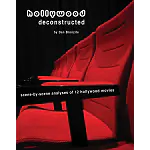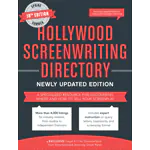How to Write a Script
Getting a Movie Script Noticed isn’t Impossible
So many people find themselves stuck in unsuitable jobs. They sit behind desks in grey, soulless office blocks, churning out countless dull reports, when what they'd really like to…
A Beginner’s Guide to Writing Comedy
Successfully transferring your sense of humor from speech and actions to script can be one of the more difficult skills to develop when pursuing a career in screenwriting. The…
Why You Need Screenwriting Software
Getting to the top in the movie world can be tough, but you can rest assured that all your hard work will be worth it once your screenplay is…
How to Write a Script
The Screenwriter's Guide To Script Writing Every movie needs a script. A script is the instruction manual for any movie, as it details every visual and aural aspect of…
Avoid Temptation to Show Off When Writing a Script
If you have wondered how to write a script, you will know there are many things to bear in mind. Obviously, you have to have a clear idea of…



